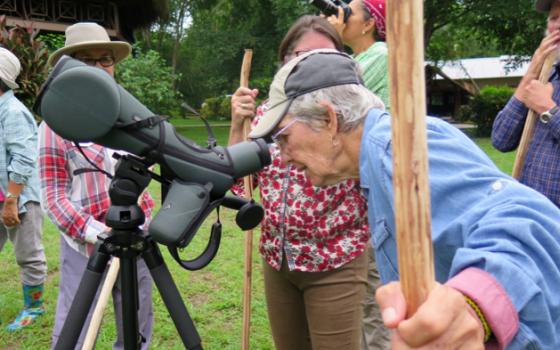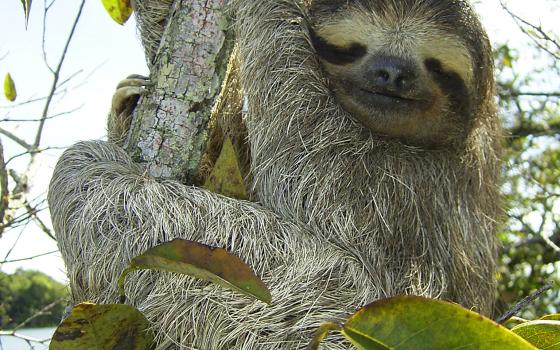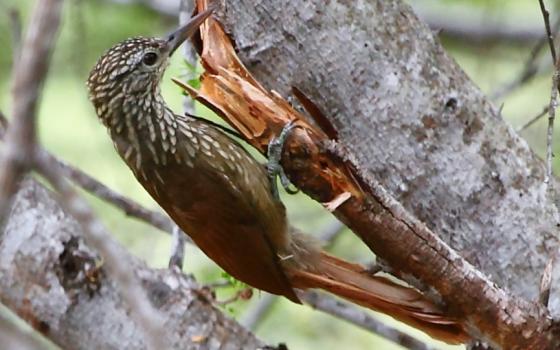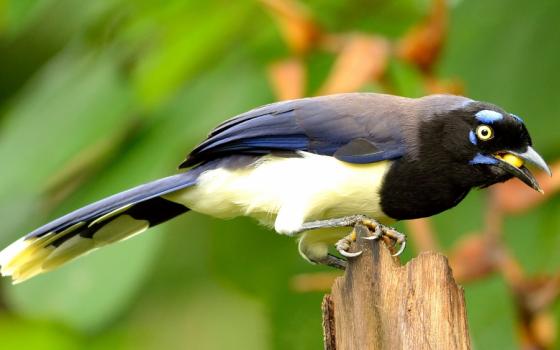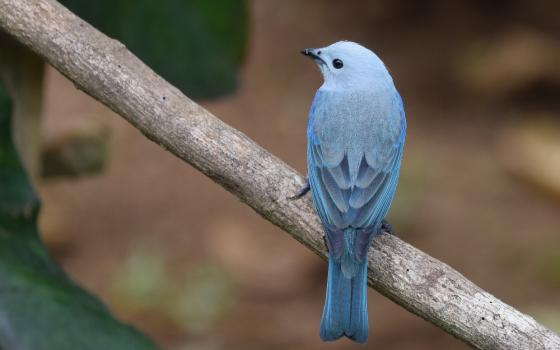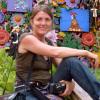The Earth is a living, conscious being. In company with cultures of many different times and places, we name these things as sacred: air, fire, water, and earth. ...
All people, all living things, are part of the earth life, and so are sacred. No one of us stands higher or lower than any other. Only justice can assure balance; only ecological balance can sustain freedom.
Only in freedom can that fifth sacred thing we call Spirit flourish in its full diversity.
- Starhawk, The Fifth Sacred Thing
Long before the human denizens of the forest are awake, it hums with life. Howler monkeys grouse above our heads, holding back from the full roar that emerged earlier in the night. Crickets, tree frogs, night birds and strange, unidentified creatures all hold court under cover of darkness.
It's now 5 a.m., and the Maryknoll Sisters are waking up and beginning their day. I wake with them to do my work, listening to theirs from a respectful distance. Candlelight, coffee, quiet laughter, the sharing of plans and visions and dreams.
I'm excited because at 6:30 a.m., we're going birding with Rosabel Miró, executive director of the Panama Audubon Society. By the time the appointed hour arrives, all has gone silent.
The group gathers around Miró and her magic telescope with great expectations. Nothing happens. Finally, Claretian Fr. José Maria Vigil spots something in the giant cuipo tree. Could it be the elusive harpy eagle?
No, but it was something that could hold still long enough for everyone in our group to see. It was a three-toed sloth — furry and endearing, like a creature from a Disney movie.
Maryknoll Sr. Melinda Roper was hesitant to try — she doesn't usually have much luck seeing things with telescopes and binoculars, she said. She tried and saw nothing. But others went ahead and spotted the slow-moving creature, figured out the trick, and convinced her to give it another try.
Suddenly, her face brightened.
"It's a sloth," she confirmed.
Soon, a flash of wings in a nearby tree called Miró's attention, and she was off, spotting a black-chested jay. Then a ruddy ground dove, followed by a red-rumped woodpecker, a variable seedeater, a blue-gray tanager, a straight-billed woodcreeper: A veritable menagerie flitted among the trees, and tuning into it just required patience, stillness and a little bit of time.
Later, in the reflections shared, Roper returned to this theme.
"The first question is, 'Where are we?' and this morning with Rosabel, I said to myself, 'Melinda, where have you been?' Honestly, I don't see any of this. I only at last managed to see the sloth."
"Very symbolic," interjected Maryknoll Sr. Linda Donovan as the group laughed heartily.
"So I ask again every day, 'Where am I?' But if I don't see the half of what she sees, and I live here — this experience made me laugh at myself. Sometimes we are very funny," Roper said.
"But I believe in the Chinese saying about crisis and opportunity ... if we opt for the opportunities that exist and begin to see the things that surround us that we don't realize, and if a person of 80 can continue learning and realizing what is happening not only within but also around me ...
"I see the possibility and probability of the integration of oneself with one's surroundings, and we gradually grow into being members of the whole community of life instead of separating ourselves out — and then we may call this an ecology spirituality," she added.
The day was one of transition. Two earlier presenters, Hermel López, regional environment ministry representative for Darién, and Osvaldo Jordán of the Alianza para el Desarrollo y Conservación (Alliance for Development and Conservation) shared reflections about the future for Matusagaratí and its meaning as a microcosm of the larger picture.
Participants joined in a thought-provoking reflection that I will discuss at a later time, as the group immediately jumped into a series of activities that didn't end until nearly 10 p.m. in Panama City.
Today, Friday, is the last day, and we will go to see the Panama Canal and then have an integration ceremony. Meanwhile, we share an offering from yesterday from the Book of Job (12:7-10):
Ask the animals — and they shall instruct you;
ask the birds of the air — and they shall tell you;
ask the plants of the Earth — and they will teach you
and the fish of the sea will declare to you.
Who among all these does not know that the
hand of our God has done this?
In God's hand is the life of every living being
and the breath of humankind.
[Tracy L. Barnett is an independent writer, editor and photographer specializing in environmental issues, indigenous rights and sustainable travel.]
